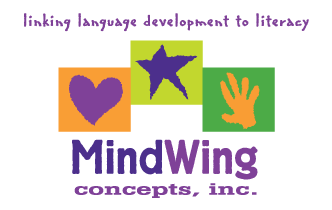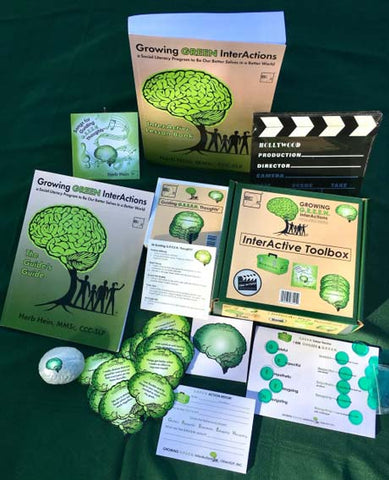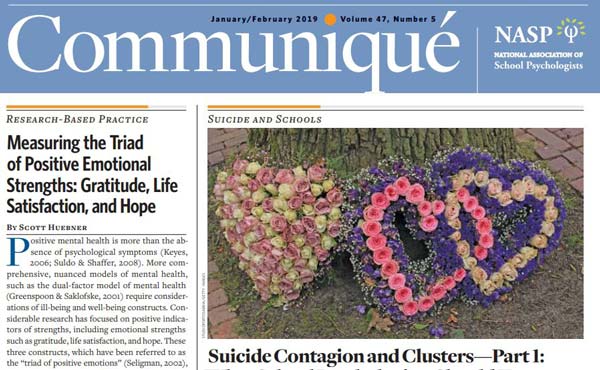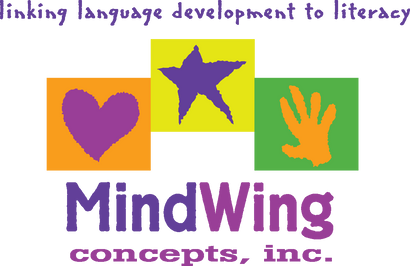Secure Checkout. FREE SHIPPING for Continental U.S. Orders over $60.
Menu
-
- Home
-
About Us
-
The Approach
-
Linking Language & Literacy
-
MindWing Learning
-
Learning Resources
-
SHOP
-
Blog
-
- About MindWing
- Our People
- Contact Us
- Your Account
- Login
-
United States (USD $)

Secure Checkout. FREE SHIPPING for Continental U.S. Orders over $60.
SGM® and G.R.E.E.N. Interactions for Social Literacy
by Maryellen Rooney Moreau October 08, 2019 3 min read 1 Comment
Recent federal funding and educational research have highlighted the need for trauma-informed programs and trauma-sensitive approaches. For many years I have shared how Story Grammar Marker® can be used to help children in trauma to think about and express their “stories” (personal narratives) as well as how to think about kick-offs, feelings and plans in life. Story Grammar Marker® is aligned with trauma-informed care. SGM® is an effective tool to use with trauma-informed strategies for working on oral language development,  critical thinking, and social-emotional learning. In my research, I came across an article entitled “Want Your Children to be Kinder? Try This Assignment” by Justin Parmenter. The author encouraged his students to be “Undercover Agents of Kindness” as they each drew the name of a classmate and planned to perform a mission of kindness: “an unexpected act of kindness for the classmate.” After doing the unexpected act of kindness, the students were asked to write a “mission report…detailing what they did and how it went.”
critical thinking, and social-emotional learning. In my research, I came across an article entitled “Want Your Children to be Kinder? Try This Assignment” by Justin Parmenter. The author encouraged his students to be “Undercover Agents of Kindness” as they each drew the name of a classmate and planned to perform a mission of kindness: “an unexpected act of kindness for the classmate.” After doing the unexpected act of kindness, the students were asked to write a “mission report…detailing what they did and how it went.”
What was interesting in the article was that many of the students did not normally talk with each other, and when they drew a name had no idea who the student was although the seventh-grade language arts class was in operation for two months at the time of the assignment!
I thought of the Story Grammar Marker® when I read this piece. How great would it be to use an SGM® Episode Organizer to write about the mission via the feelings, thoughts, plans, attempts, and consequences, as well as lessons learned by both the doer and the receiver!
 Reflecting on children in trauma and on the “agent of kindness” activity reminded me of a program a fellow speech/language pathologist, Herb Hein, introduced to me at ASHA 2018 in Boston. It is called Growing G.R.E.E.N. InterActions Social Literacy Program. As I listened to him speak I began thinking about the need to develop and nurture the Five G.R.E.E.N. Character Traits fostered through the program.
Reflecting on children in trauma and on the “agent of kindness” activity reminded me of a program a fellow speech/language pathologist, Herb Hein, introduced to me at ASHA 2018 in Boston. It is called Growing G.R.E.E.N. InterActions Social Literacy Program. As I listened to him speak I began thinking about the need to develop and nurture the Five G.R.E.E.N. Character Traits fostered through the program.
They are:
- Grateful, to appreciate
- Respectful, to be well mannered
- Empathetic, to care about the feelings of others (kindness)
- Easygoing, to cooperate
- Navigating, to use strategies to cope with challenges
Each of these traits creates social interaction skills and enables students to work in groups to solve problems, particularly those occurring in their lives or the lives of those around them. The manuals accompanying the program delineate well-constructed targets for guiding students as they, themselves, build these traits over time. And I loved the musical materials. Seventeen short songs focusing on optimism (“Optimism  Returns”), gratitude (“Grateful’), life appreciation (“I Appreciate”) and hope (“Forward Dreams”). The Interactive Toolbox contains reinforcers for use as students work to acquire the characteristics.
Returns”), gratitude (“Grateful’), life appreciation (“I Appreciate”) and hope (“Forward Dreams”). The Interactive Toolbox contains reinforcers for use as students work to acquire the characteristics.
Story Grammar Marker® can be used for character development, perspective-taking, talking about feelings, and making plans, which would provide a hand-on way to support this program. The components of the program lend themselves to collaboration among specialists and teachers alike.
In accordance with the last sentence above, the January/February 2019 issue of Communique, a publication of the National Association of School Psychologists, features an article entitled “Measuring the Triad of Positive Emotional Strengths: Gratitude, Life Satisfaction, and Hope” by Scott Huebner.

The article calls for attention to positive indicators of strengths, including emotional strengths such as gratitude, life satisfaction, and hope. Citations (Seligman, 2002) called these three constructs the “triad of positive emotions.” These constructs were cited in the Handbook of Positive Psychology in Schools by M. J. Furlong, R. Gilman & E. S. Huebner (Eds). It seems as if Growing G.R.E.E.N. InterActions Social Literacy Program—along with Story Grammar Marker® as support for social communication—would be a perfect fit when planning programs to assist students to grow interactive skills that incorporate the “triad of positive emotions,” supporting all children, especially those in trauma.
I love researching applications of Story Grammar Marker®. I especially love it when that research brings me to other effective resources such as Justin Parmenter’s “agent of kindness,” Hein’s Growing G.R.E.E.N. InterActions Social Literacy Program, and Heubner’s article in Communique that can dovetail with SGM® to help children with social communication, social-emotional learning, and social literacy.
Maryellen Rooney Moreau
Maryellen Rooney Moreau, M.Ed., CCC-SLP, is the founder of MindWing Concepts. She earned her Bachelor of Arts degree in Communication Disorders at University of Massachusetts at Amherst as a Commonwealth Honors Scholar, and a Masters of Education in Communication Disorders at Pennsylvania State University. Her forty-year professional career includes school-based SLP, college professor, diagnostician, and Coordinator of Intervention Curriculum and Professional Development for children with language learning disabilities. She designed the Story Grammar Marker® and has been awarded two United States Patents. She has written more than 15 publications and developed more than 60 hands-on tools based on the SGM® methodology. Maryellen was awarded the 2014 Alice H. Garside Lifetime Achievement Award from the International Dyslexia Association, Massachusetts Branch.
1 Response
Leave a comment.
Comments will be approved before showing up.

Herb Hein
December 10, 2019
Thank you, Maryellen, for sharing how my Growing G.R.E.E.N. InterActions Social Literacy Program and your Story Grammar Marker can work together as effective resources for guiding students to use their thinking skills to be more aware of others, and how they can interact in a prosocial manner. Students today can benefit from explicit instruction in how to act Grateful, Respectful, Empathetic, Easygoing (cooperative) and Navigating. Your readers can learn more about the Growing G.R.E.E.N. InterActions Program at our website (www.HeinSLPinc.com) and at
the ASHA Convention in Orlando where I will presenting on “Making the Best Behavior Choices: Teaching Language, Analysis & Self-Monitoring Skills for Thoughtful Interactions.” I am grateful for your kind connection!